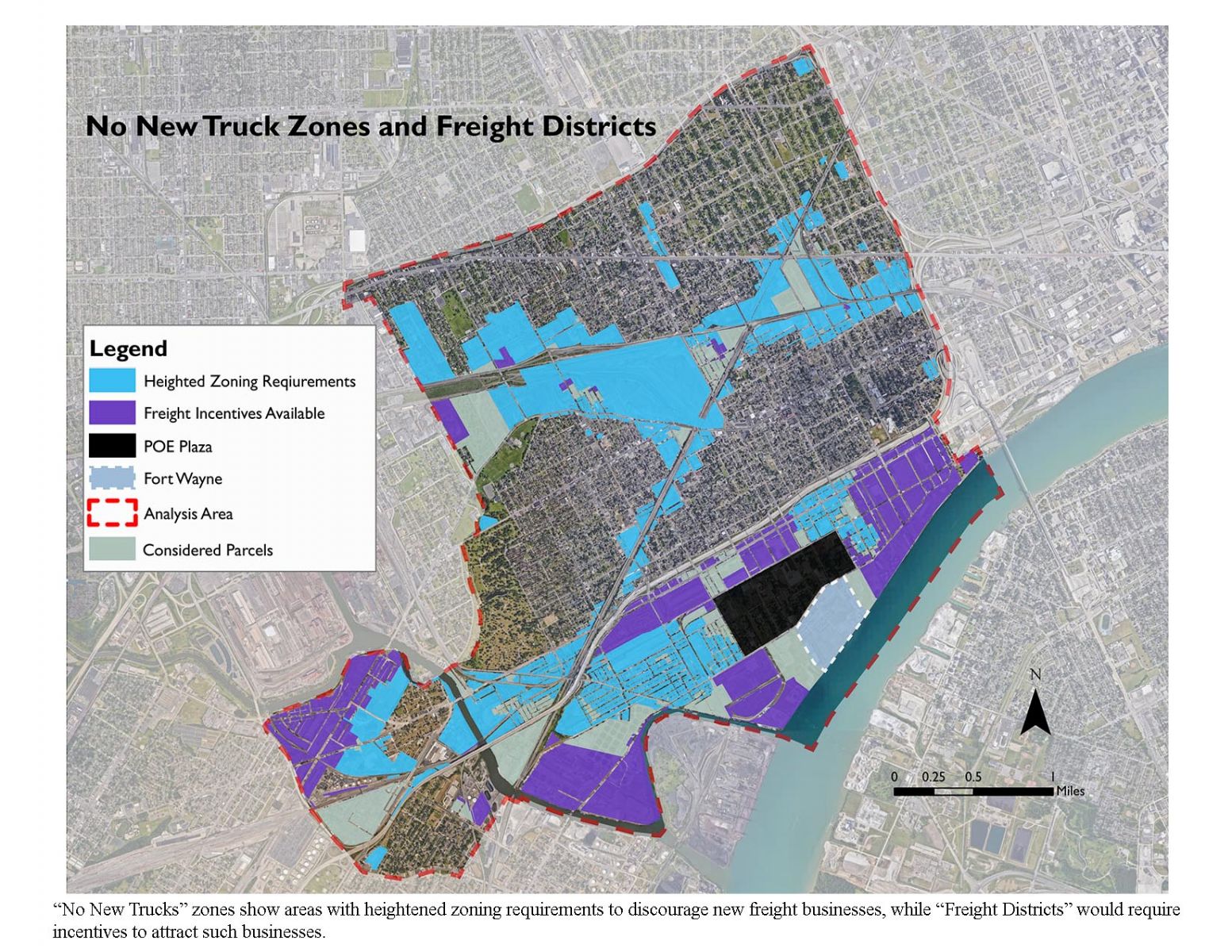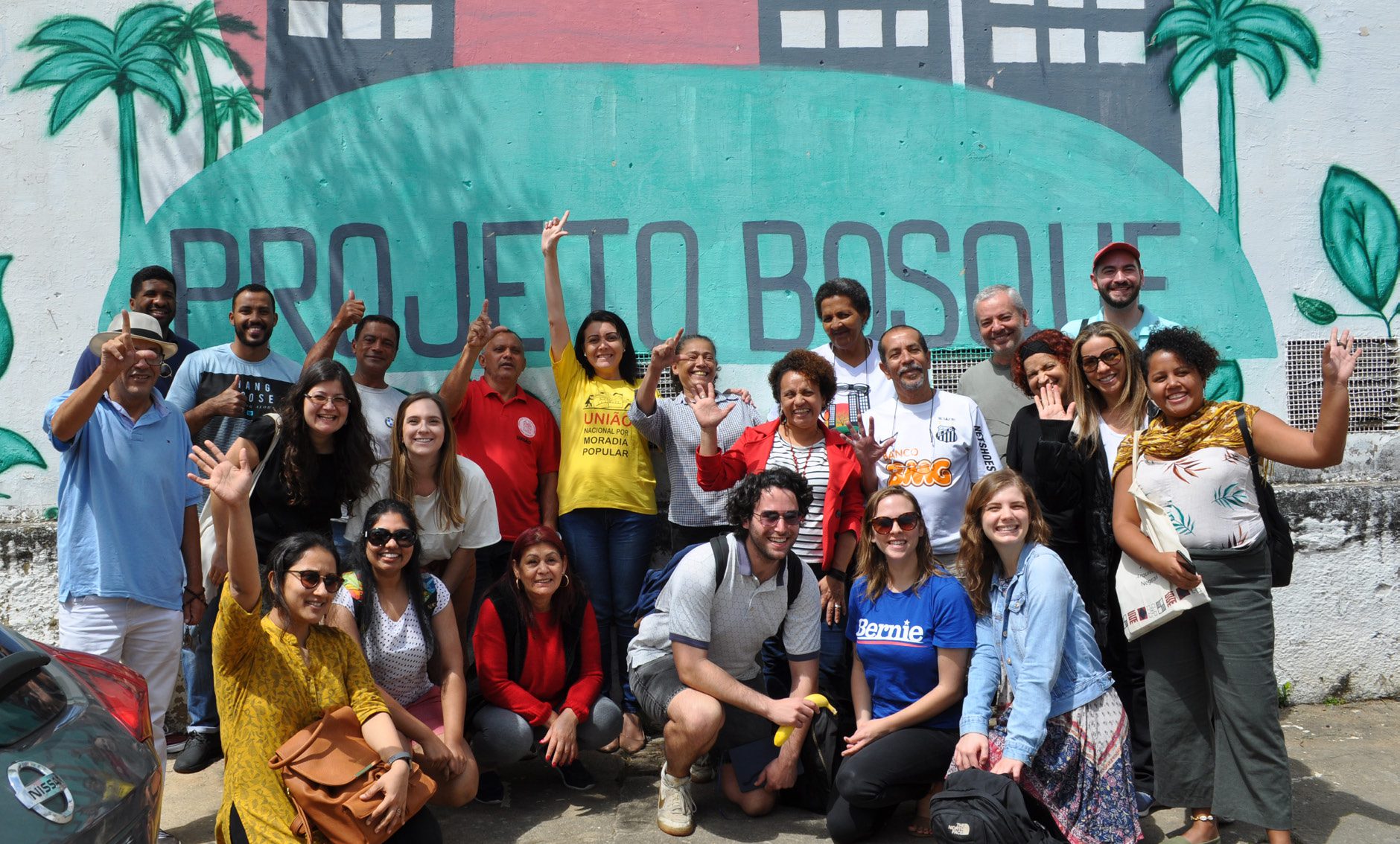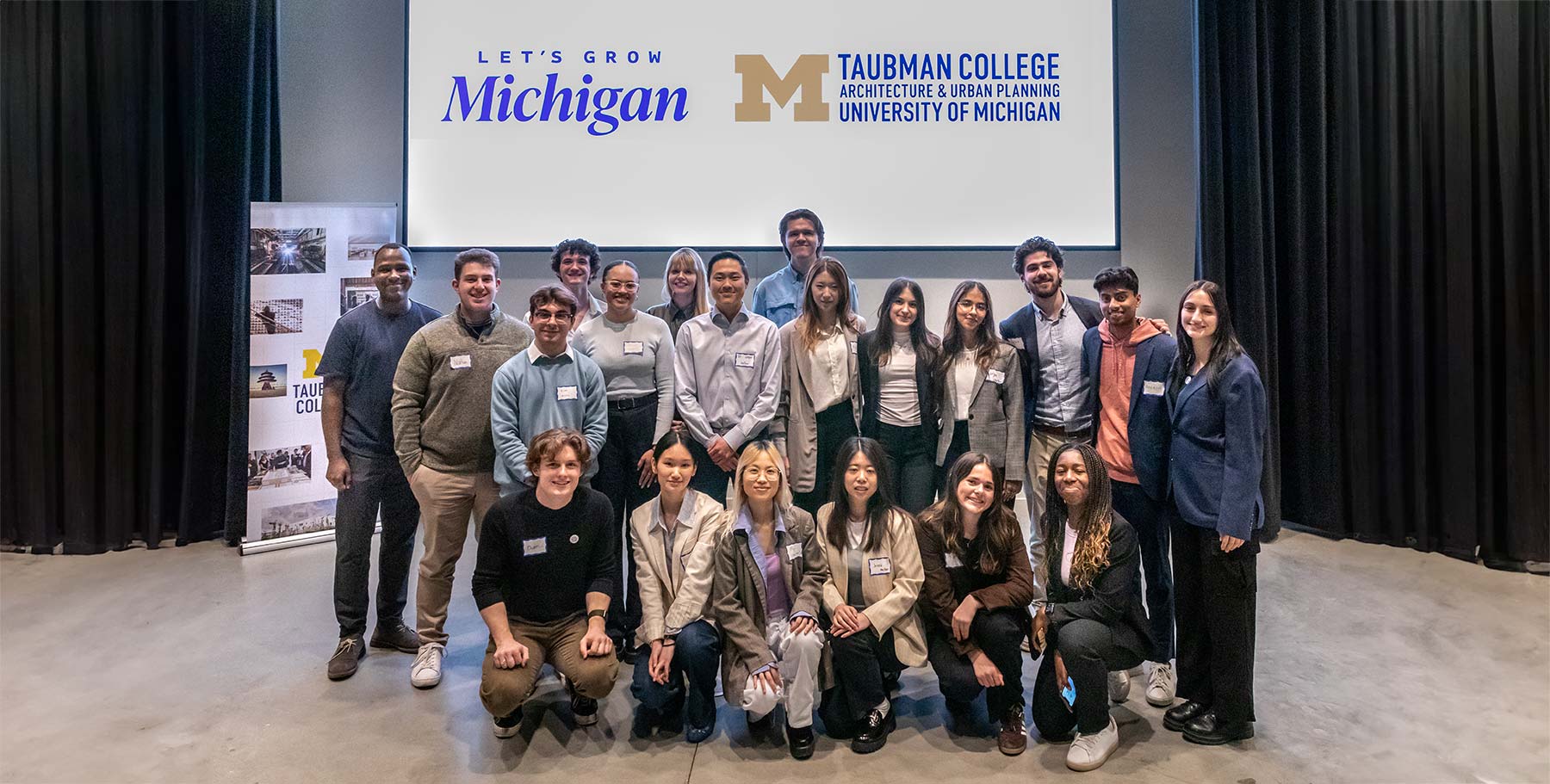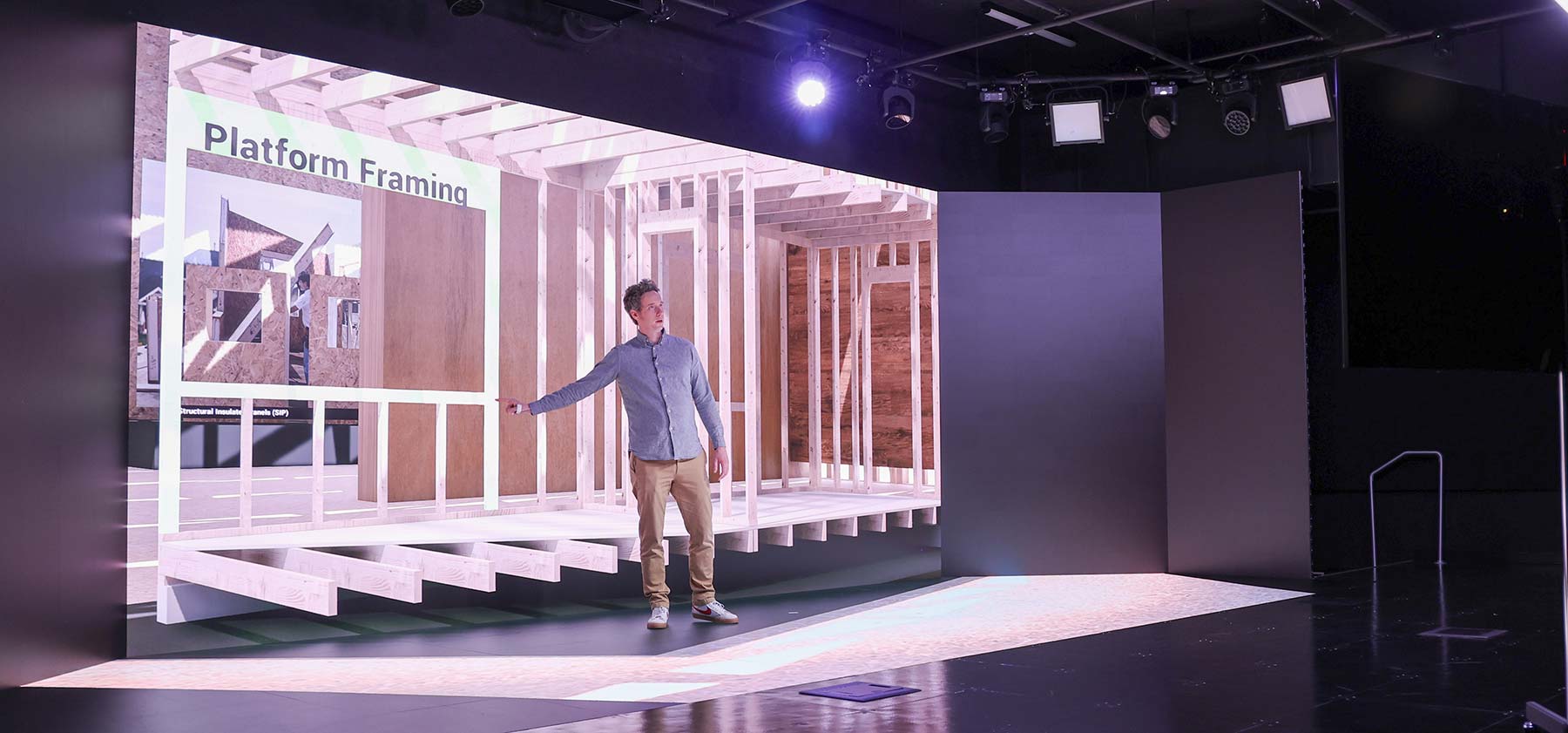Two Taubman College urban and regional planning capstone studio teams recently received honors from the Michigan Association of Planning, the Michigan Chapter of the American Planning Association. They tied for the Outstanding Graduate Student Project Award as part of the 2020 Planning Excellence Awards.
With the co-winners for 2020, Taubman College student teams have won the Outstanding Graduate Student Project Award 11 of the past 13 years. The 2020 winning teams represent work on behalf of clients in Detroit and in Brazil, demonstrating the global connections and diverse lenses of study that urban and regional planning students at the University of Michigan enjoy.
“Our capstone studio courses are a signature experience for students in Michigan’s planning program, and we have a long tradition of carrying out projects jointly with and in service to communities that struggle to come up with resources on their own,” said Joe Grengs, associate professor of urban and regional planning and the program’s chair. “This approach inspires our students to regularly go above and beyond expectations, and we’re grateful to the Michigan Association of Planning for recognizing the outstanding work of two projects this year ranging from Detroit to São Paulo.”

The award-winning capstone project “Bridging the Gap: Planning for Neighborhood Quality of Life in Southwest Detroit” offers ways to mitigate noise pollution from a new bridge across the Detroit River.
The capstone studio is the culminating learning experience in the final semester of the Master of Urban and Regional Planning program. These client-based, collaborative planning experiences mirror actual practice and uniquely focus on the needs of a community partner or client. Capstones provide an active learning experience for students, in which they address timely and relevant planning problems, engage with actual clients, and experience a professional work setting with the support of faculty. In addition, capstones provide important assistance for local governments and nongovernmental community development groups, helping them tangibly advance their mission or address a pressing planning problem that speaks to issues of social justice and sustainability.
The award-winning projects and teams are:
Self-Management Law, Now! Fostering Community-Owned, Permanently Affordable and Sustainable Housing in Brazil (Winter 2020)
Students helped to develop a national educational and advocacy campaign for a draft bill that outlines a new legal framework for autogestão housing in Brazil. In response to an inaccessible formal housing market, members of Brazilian social movements have proposed autogestão (self-managed) housing, which is democratically produced and governed through practices of mutual aid. Despite the success of autogestão housing, shifting public administrations often translates to unstable funding streams and support. Thus, the bill outlines a new legal framework for autogestão housing that aims to establish permanent programmatic support and funding at the federal level. The Taubman College team advanced this agenda by strengthening the collective property section of the bill; researching and developing a toolkit of advocacy materials, including a documentary, mapping platform, case studies, and educational flyers, all hosted online; and producing Autogestão, Já! (Self-Managed Housing, Now!), a 15-minute documentary showcasing the potential of autogestão to benefit millions of low-income Brazilians. The team conducted fieldwork in the São Paulo Metropolitan Region in March 2020 in which they visited housing sites, met with residents and leaders of the movements, conducted a participatory workshop, interviewed experts, and documented the autogestão housing development process. They also assisted their clients’ efforts to promote environmental stewardship in existing housing developments subjected to strict environmental regulations.
The jury commented: “The ability to conduct this body of research, critically analyze it, and provide strategy in such a short time frame was impressive.”
Team members: Alex Abramowitz, David Baker, Josh Childs, Meagan Gibeson, Jacob Hite, Kimberly Higgins, Neetu Nair, Mrithula Shantha Thirumalai Anandanpillai, Rebecca Yae, and Jessica Yelk
Faculty adviser: Ana Paula Pimentel Walker
Bridging the Gap: Planning for Neighborhood Quality of Life in Southwest Detroit (Winter 2019)
“Bridging the Gap” mitigates the harm anticipated from the opening of the Gordie Howe International Bridge between Detroit and Windsor, Ontario, in 2024. The team broke the problem of the harmful impacts of truck-traffic increases into three approaches: land-use planning, truck-route planning, and barrier-based mitigation. All three approaches required considerable methodological innovation in order to develop and test alternative strategies. For example, determining proximity to occupied residential parcels (an indicator of sensitive land from which truck-related uses needed to be discouraged), the team needed to assemble data from disparate sources on Detroit zoning, parcels, and residential vacancies. Similarity, assessing sensitive features required assembling data on Detroit public schools, parks, churches, community centers, and more. Truck-route planning required network analyses from a representative set of industrial origins to the area of the bridge’s entry plaza to generate forecasts of truck-driver behavior with and without controls. And assessing plans for soundwalls involved constructing three-dimensional infrastructure models that would enable the team to assess areas that would and would not benefit from the mitigation they provide. These methods helped the team to identify notable gaps in current plans by the Michigan Department of Transportation. While the context of “Bridging the Gap” is Southwest Detroit, the problems it addresses are widespread, particularly in older industrial cities.
The jury commented: “The local focus resonates well. Particularly liked the implementation aspects, going from paper to active practice.”
Team members: Andong Chen, Yichen Chen, Augusta Gudemann, Liz Gunden, Christopher Rodriguez, Ruben Shell, Siyi Song, Ben Stacey, Peter Swinton, Peiwei Wu, and Tian Xie
Faculty advisers: Eric Dueweke and Jonathan Levine





